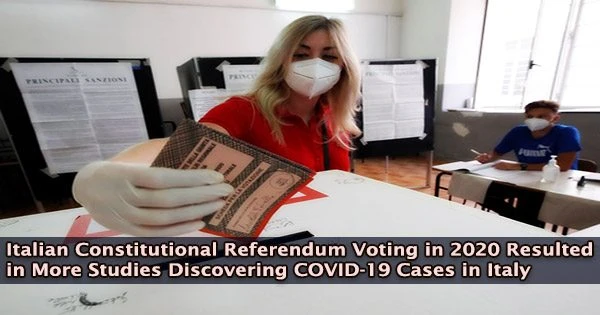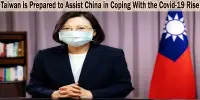A constitutional change to lower the number of parliamentary representatives was put to the Italian people’s vote in September 2020, at the height of the first wave of the Covid-19 pandemic.
In addition, voters chose delegates for regional administrations and assemblies in seven of Italy’s 20 regions. Lastly, they chose new mayors in 955 of the country’s 7,903 municipalities.
In comparison to municipalities that only voted in the referendum, those that participated in both the referendum and local elections had a 22% increase in voter turnout as a result of the higher level of election activity.
The Surrey team examined weekly Covid-19 infections in Italy (at the municipal level) prior to and during the September election and discovered that a 1% increase in turnout corresponded to an average 1.1% rise in post-election infections.
The decision whether to postpone an election or a general referendum due to a pandemic event poses a clear trade-off between human lives and health on the one hand, and political rights on the other hand. With our research, we propose an economic framework for such an important evaluation to be undertaken in similar future situations.
Dr. Marco Mello
Dr. Giuseppe Moscelli, co-author of the study and Reader of Economics at the University of Surrey, said:
“With the recent political turmoil in Italy culminating with the end of Mario Draghi’s government, it is important to reflect on the past two and a half years, which have been an immensely tragic period for all of Italy.”
“The 2020 referendum came as the world was dealing with the unprecedented threat of Covid-19, and our model shows that something as fundamental as casting a vote can come at a cost.”
Along with saving approximately 23,000 lives, Surrey’s researchers found that delaying the 2021 Italian general election saved the country €362 million in additional hospital costs for patients that would have been admitted to inpatient care and Intensive Care Units.
Dr. Marco Mello, co-author of the study and a Research Fellow at the University of Surrey, added:
“The decision whether to postpone an election or a general referendum due to a pandemic event poses a clear trade-off between human lives and health on the one hand, and political rights on the other hand. With our research, we propose an economic framework for such an important evaluation to be undertaken in similar future situations.”
















